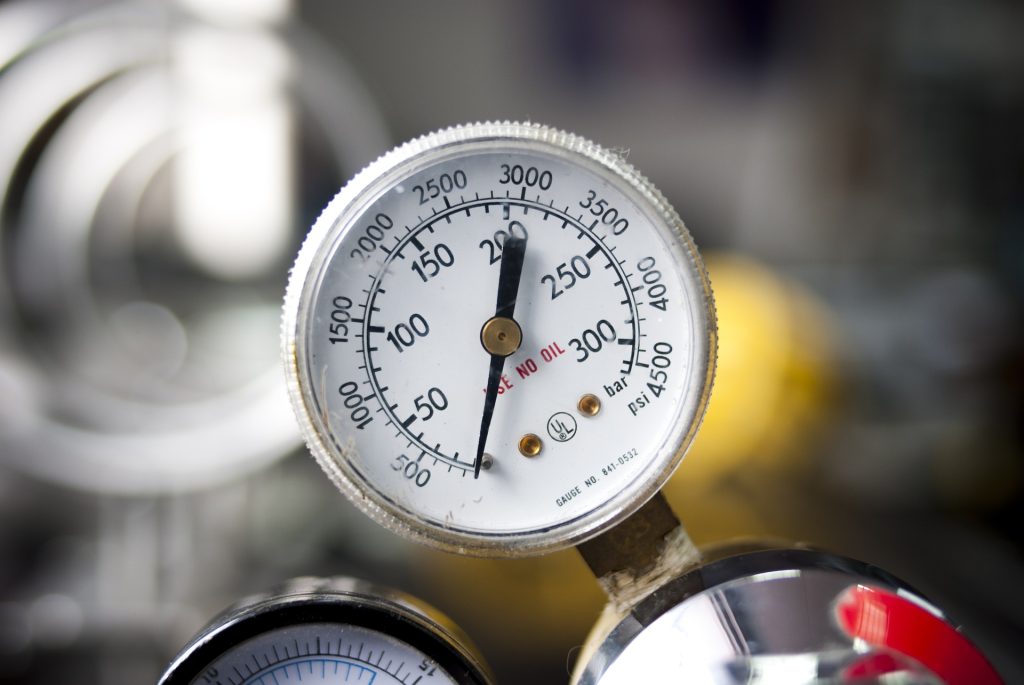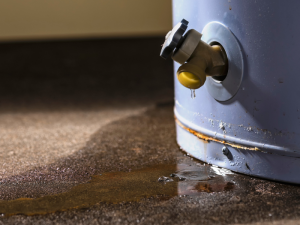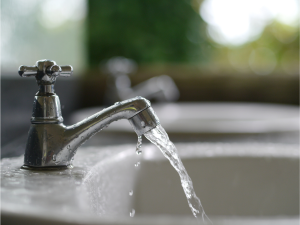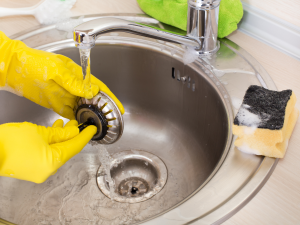A normal boiler pressure is anywhere between 1 and 2 bars. Whenever the boiler water pressure is at this point, the gauge on the boiler should be within the green range. However, the gauge will be red if the boiler pressure is above or below the recommended amount.
Even if your boiler is outside of the recommended pressure, it may work, but the boiler likely has a major problem if it refuses to shut down or refuses to switch on. So, you should check the pressure once a month and fix the problem once you notice the pressure is not correct.
To learn more about the correct pressure for a boiler, read on. This article helps to answer questions like, “What pressure should my boiler be?” It will also discuss how to fix the problem. Let’s get started.
What Is the Correct Pressure for a Boiler?
The correct pressure for your boiler depends on whether the heater is on. Generally speaking, you want the boiler to be anywhere between 1 bar and 2 bars at all times. This is the correct pressure for a boiler.
To better ensure that your boiler is functioning as it should, you should make sure that the boiler pressure is correct, depending on whether your heating is turned on or off. Whenever you turn up the heater, the pressure should go up.
With this in mind, the correct pressure for a boiler whenever the heating is on is between 1.5 and 2 bars. Whenever the heating is off, the correct pressure is between 1 and 1.5 bars.
How to Check the Operating Pressure of Boiler
It should be pretty easy to check the operating pressure of your boiler. Almost all boilers today have a gauge that tells you the operating pressure. Most often, this gauge is equipped with green zones and red zones so that it is easy to know if the pressure is good.
Just head over to your boiler and look at this gauge. If the gauge is in the green, it is all set. However, your boiler has a problem if it is in the red area. In the case that you don’t have green or red markings on the gauge, just look at the number. The pressure should be between 1 and 2 bars.
How Often Should I Check My Boiler Pressure?
To ensure that your boiler is always working as it should, it’s best to check your boiler pressure once a month. Checking once a month ensures that regular temperature changes or increased use of heating do not result in your boiler pressure being in critical condition.
If you decide to turn on the heating or turn it off halfway through the month, just check the pressure shortly after changing the status of your heating. This ensures that the pressure is at a good level.
Should the Boiler Pressure Rise When Heat Is On?
If you pay close attention, you should notice that your boiler pressure changes whether or not the heating is on.
Whenever the heating is on, the boiler pressure is likely higher than when it is off. Most often, the boiler pressure is around the 2 bar mark when the heating is on. It might be slightly above or slightly below this mark, but it shouldn’t be outrageously above 2 bars.
When it comes time to turn the heating off, the boiler pressure will decrease. Most often, it decreases to between 1.3 and 1.5 bars.
How Do I Increase My Boiler Pressure?
If your boiler pressure is in the red zone or below 1 bar, the pressure needs to be increased. In order to do this, you need to turn off the boiler completely and allow it to cool down before fixing the problem.
While the boiler is cooling down, grab an external filling loop. Using this external filling loop, add cold water to your boiler system. This should increase the boiler pressure.
If you do this and the boiler pressure continues to decrease, you probably have a leak in your system. If this is the case, you should contact a professional to fix the problem. Of course, you can always hire a professional to do all of this if you are uncomfortable increasing the boiler pressure yourself.
How Do I Decrease My Boiler Pressure?
Just as it’s bad to have a boiler pressure that’s too low, it is also bad to have one that is too high. There are a couple of explanations as to why your boiler pressure is too high.
The first possible reason your boiler pressure is too high is that you increased it too much. It also could mean that you did not close the pressure relief valve all the way, or that you knocked it open or loosened it.
With this in mind, make sure that you did not turn the pressure up too high. Then, make sure that all of the valves are tightly closed. In most cases, doing these two things will fix the problem. Finalize the job by bleeding your radiator.
If you are uncomfortable with decreasing the boiler pressure on your own, contact a professional to do the job for you. This is the safest way to bring your boiler pressure down to appropriate levels.
Final Thoughts
So, what pressure should my boiler be? The answer is simple: between 1 and 2 bars. To better answer this question, it should be between 1 and 1.5 bars if your heating is off but between 1.5 and 2 bars if the heating is on.
It’s important to check your boiler pressure once a month. Anytime that you see the boiler pressure is above or below the recommendations, you should fix the problem. You can have a serious issue on your hands if you fail to do so.
If you have some experience working with boilers, you can increase or decrease the pressure yourself. However, always feel free to contact a professional if you need to fix your boiler pressure and are uncomfortable doing it yourself.








